Brazil’s Bolsonaro braced for uphill reelection battle as polls show public looking to Lula
Polling shows Jair Bolsonaro losing to ex-president Luiz Inácio Lula da Silva in October’s vote as criticism grows over his handling of Covid and the Amazon in a tenure marked by callousness and chaos, writes Andrew Naughtie


Of all the ascendant autocrats who have flexed their muscles over the last decade, only one can lay claim to a global reputation that rivals that of Donald Trump.
Others have been more cunning, more brutal and more successful at warping their countries’ institutions around them, but nonetheless, Brazil’s Jair Bolsonaro – proudly intolerant, perpetually antagonistic and openly affectionate toward a dictatorship that tortured and disappeared thousands of his countrymen – sits in a class of his own.
And yet, in just over six months, Bolsonaro’s reign may come to an end. The president’s popularity has shown little sign of recovery since the worst of the country’s catastrophic bout with Covid-19, which he badly mismanaged, effectively sabotaging the rollout of vaccines while spreading misinformation about the virus. His government’s approval rating currently sits at 26 per cent.
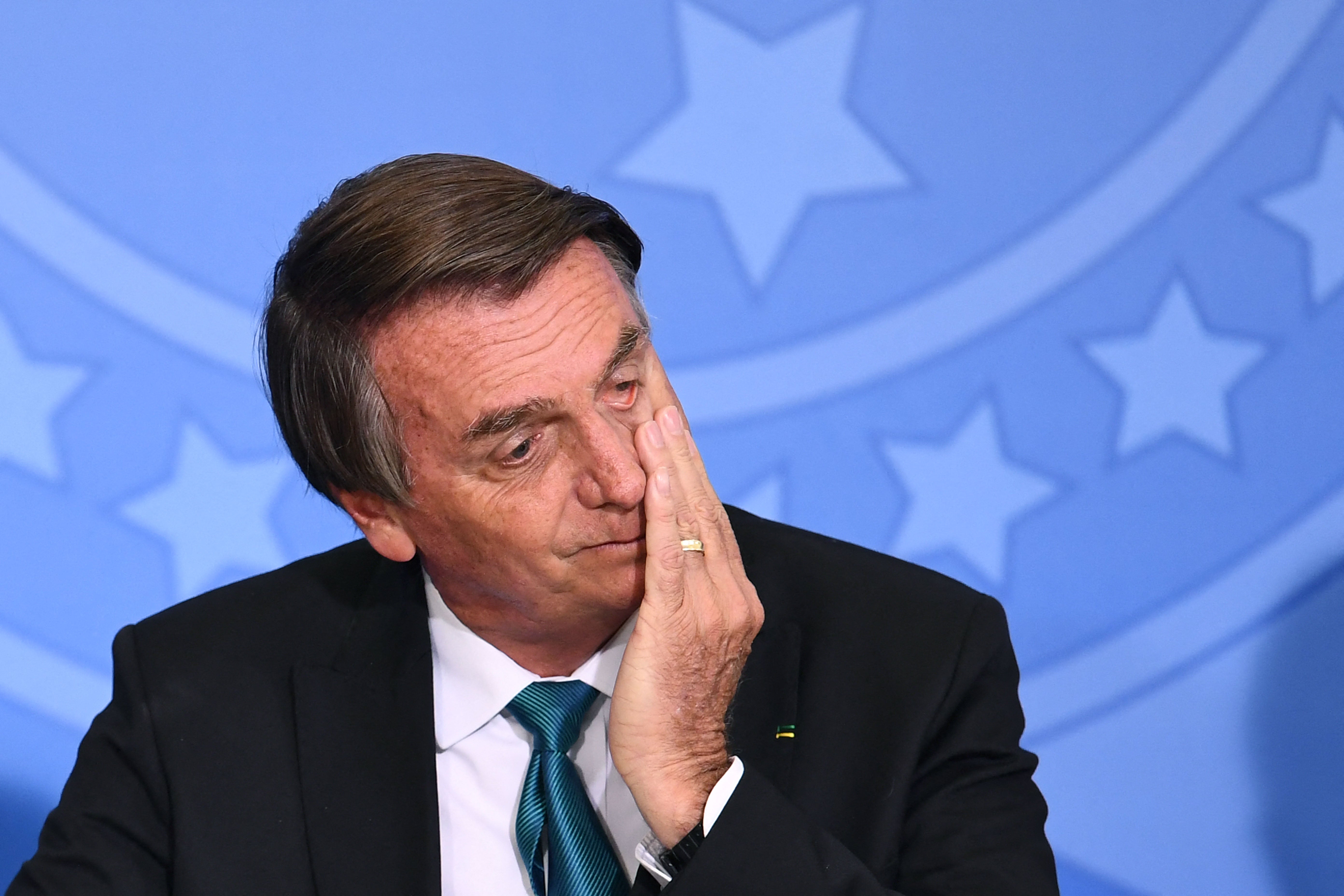
He is now polling clearly behind former president Luiz Inácio Lula da Silva – universally known as Lula – whose presidency from 2003 to 2010 was almost the opposite of Bolsonaro’s: a time when the country’s international standing rose, with anti-poverty programmes promising to at least begin the process of ameliorating an almost unparalleled level of inequality.
Having been granted legal permission to run after a corruption conviction was annulled, Lula now looks to be between seven and 20 points ahead, setting him up well for a potential runoff.
While some polls have indicated Bolsonaro has closed the yawning gap a little, others put Lula within striking distance of 50 per cent in the first round, which would end the incumbent’s presidency in a single stroke.
If the last decade in global politics has demonstrated anything, it’s that nothing should be taken for granted. But with the weight of opinion apparently tilted so strongly against him, many are considering what a Brazil after Bolsonaro would look like – and reflecting on just how disruptive and extreme the last four-odd years have been.
Allan Evangelista, a business manager in São Paulo, said he could not remember a single good moment under Bolsonaro’s tenure, which started on 1 January 2019.
“Everywhere Bolsonaro was involved, in any way, he was a disaster for Brazil,” he told The Independent.
“He gave inappropriate speeches that discredited us as a democratic nation abroad, he was unable to coordinate social programmes, and he intentionally left the worse off among us extremely vulnerable. He failed to be a conciliatory leader, which is what our badly polarised politics needed. And he’s dismantled the culture and violated the right to freedom of expression.”
That last point came to the forefront just recently after singer Marina Diamandis led a crowd in a chant of “f*** Bolsonaro” at the Lollapalooza music festival in São Paulo. “We are sick of this energy!” she declared – provoking a legal challenge from Bolsonaro’s party, which in turn succeeded in getting a judge to rule that “political demonstrations” should be banned from such events.
That incident augurs ill for the future of free political speech if Bolsonaro manages to secure another term – but as undemocratic as it was, the problem is far deeper than that.
According to Anthony Pereira, professor at the King’s College London Brazil Institute, some of the damage Bolsonaro has done will take years to undo, particularly when it comes to education and human rights. The institutions of the state more broadly have suffered too; at a 2019 dinner in Washington, DC, the president famously said he had a lot to “deconstruct” in Brazil.
“I think he meant it,” Pereira said.
Alessandro Molon, the socialist leader of the opposition in the Chamber of Deputies, has estimated that after Bolsonaro’s pro-agribusiness, pro-mining presidency, it will take four years just to restore the capacity of Brazil’s environmental protection agencies to exercise proper oversight.
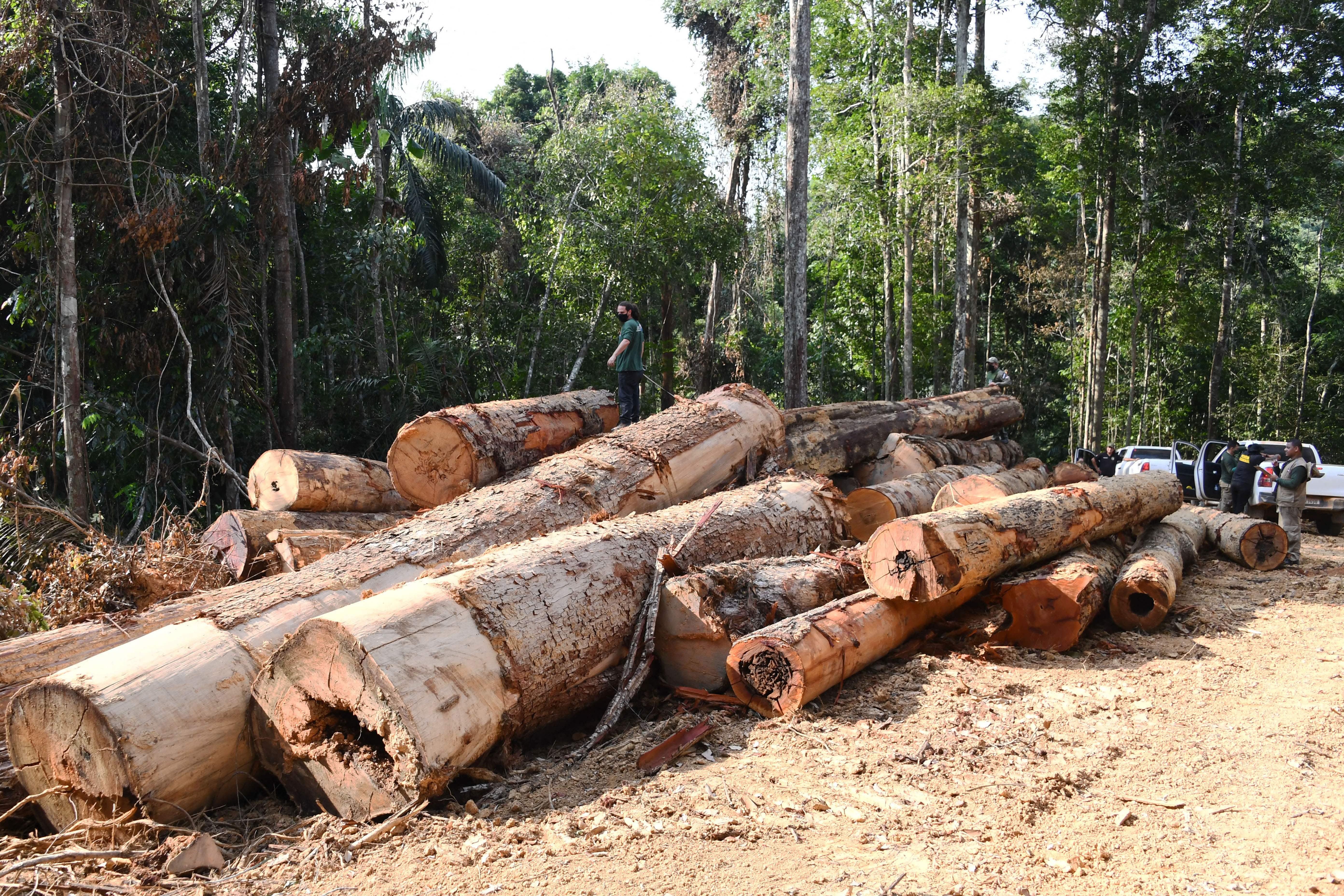
And that is separate from the actual material damage that’s been done in the Amazon, whose development has long been a fixation for militaristic nationalists paranoid about foreign invasion.
Unchecked illegal logging, agriculture and mining all surged after Bolsonaro took power, and helped create the conditions for catastrophic wildfires in 2019. Facebook’s parent company Meta recently revealed that it had removed a network of accounts linked to Brazil’s military that it said had been used to promote misleading messages about deforestation.
Meanwhile, Indigenous people – already left badly exposed since Bolsonaro defunded Funai, the agency set up to protect them – now face the threat of new encroachment.
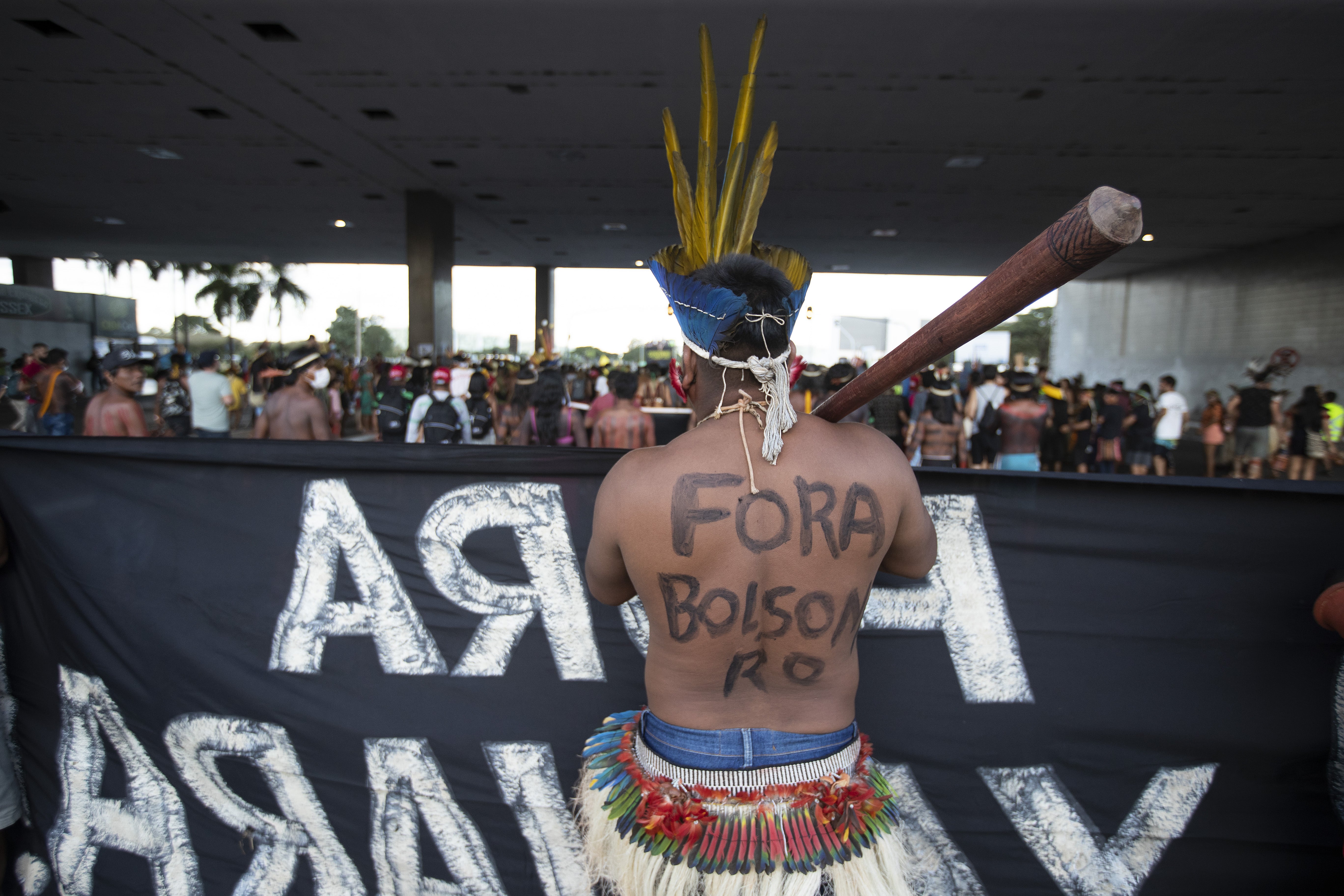
A bill currently being pushed through Congress by Bolsonaro and his allies would allow mining on Indigenous reservations that have so far been protected. The pretext is that the war in Ukraine has handed Brazil a golden opportunity to occupy some of Russia’s former space in the extractable resources sector, but so broad are the bill’s proposals that even some mining giants are distancing themselves.
This is just one chapter in Bolsonaro’s legacy; the death toll of Covid is another, and according to Pereira, one particular moment sums up just how far wrong the president went.
As Covid deaths reached the now-puny 5,000 mark in April 2020, the president was asked about the toll by a reporter. His response: “So what? What do you want me to do? I am the messiah, but I don’t perform miracles.” He did later extend a little sympathy to bereaved families, but the message was clear.

“Many in Brazil would say that it sums up his lack of intellectual, temperamental, and ethical qualifications for the job of president,” Pereira said. “It might well be what many historians remember him for. The Brazilian public had a right to expect some measure of compassion, solidarity, and leadership. Instead, what they got was callousness and a silly joke.
“And ethically, Bolsonaro seemed to be a vacuum, treating the virus as an enemy that was out to destroy his presidency, aided and abetted by people who in his eyes were too cowardly to ignore the lockdowns and were exploiting the pandemic to get him.”
Bolsonaro still trades heavily on the fact that before he arrived in office, Brazilians were enraged by the scale and brazenness of corruption in the political and business elite. Years of constant scandals involving massive companies like Odebrecht and Petrobras helped bring down Lula’s successor, Dilma Rousseff, and engulfed her usurper, the terminally unpopular Michel Temer.
But despite his relatively brief imprisonment, Lula has not been similarly tainted. He is still plugging away with a healthy lead, and it is hard to see what Bolsonaro could suddenly do to turn around his personal popularity in six months. But as he and others like him see it, that’s not the only way to remain in power.
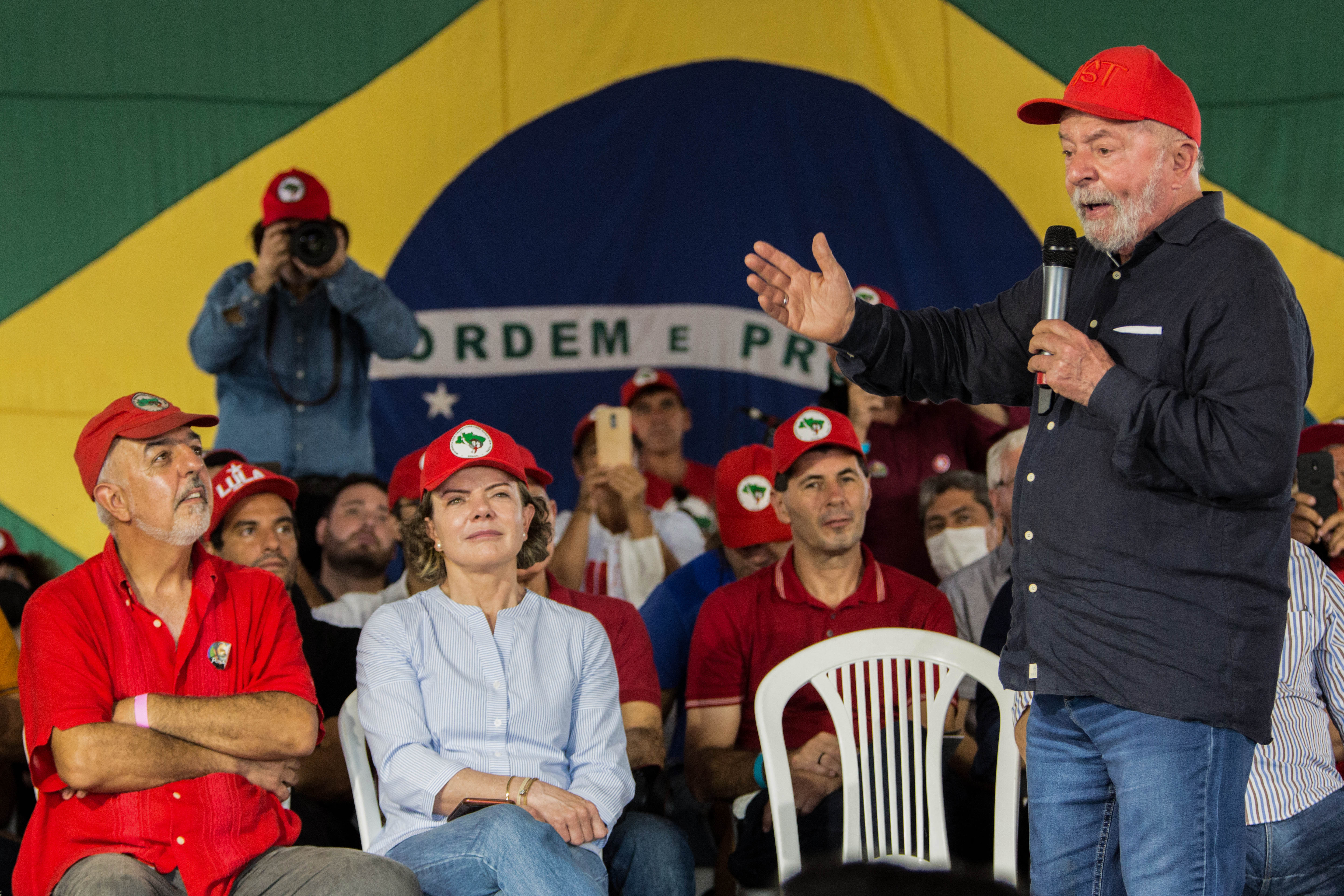
“The possibility of Bolsonaro contesting the legitimacy of the election were he to lose it (especially if the result is tight) is high,” Pereira said, “and in the two months between the second round and the inauguration he could do further damage to the capacity of federal government institutions.
“I’m not sure he’d pursue a ‘scorched earth’ policy, but at the very least he could destroy and/or abscond with documents that might incriminate him, as Trump appears to have done.”
That reference to Trump is important. The superficial parallels between the two men are obvious – both are loudmouthed and proudly callous, for a start, and both have dogged by corruption allegations along with their own children – but there are also direct connections between them.

The “deconstruction” line Bolsonaro used in Washington in 2019 specifically echoed Steve Bannon, the hardcore Trumpist who after his then-boss’s inauguration told a pro-Trump audience that the work at hand was the “deconstruction of the administrative state”.
He used that line at the Conservative Political Action Conference, or CPAC, a long-running convention for the American right which since Trump’s rise has increasingly taken its brand global. Its first full-fledged event in Brazil was in 2020 – and after the 2021 event, Trump adviser Jason Miller was detained with colleagues for three hours by Brazilian police who questioned him in connection with “anti-democratic acts”.
On that same day, Bolsonaro addressed a huge crowd of supporters he had rallied in a protest against the Supreme Court, which he claimed is machinating to steal this autumn’s election from him.
“We cannot accept a voting system that does not offer any security in the elections,” he said. “I can’t participate in a farce like the one sponsored by the head of the electoral court.”
The 6 January Capitol Hill riot-esque protests did not rally quite the turnout Bolsonaro had hoped for, and his chances of re-election scarcely look any better. Once the scourge of a hated establishment, he is currently on track to lose to a formerly imprisoned predecessor whose tenure was one of the last truly optimistic times that many Brazilians will remember.
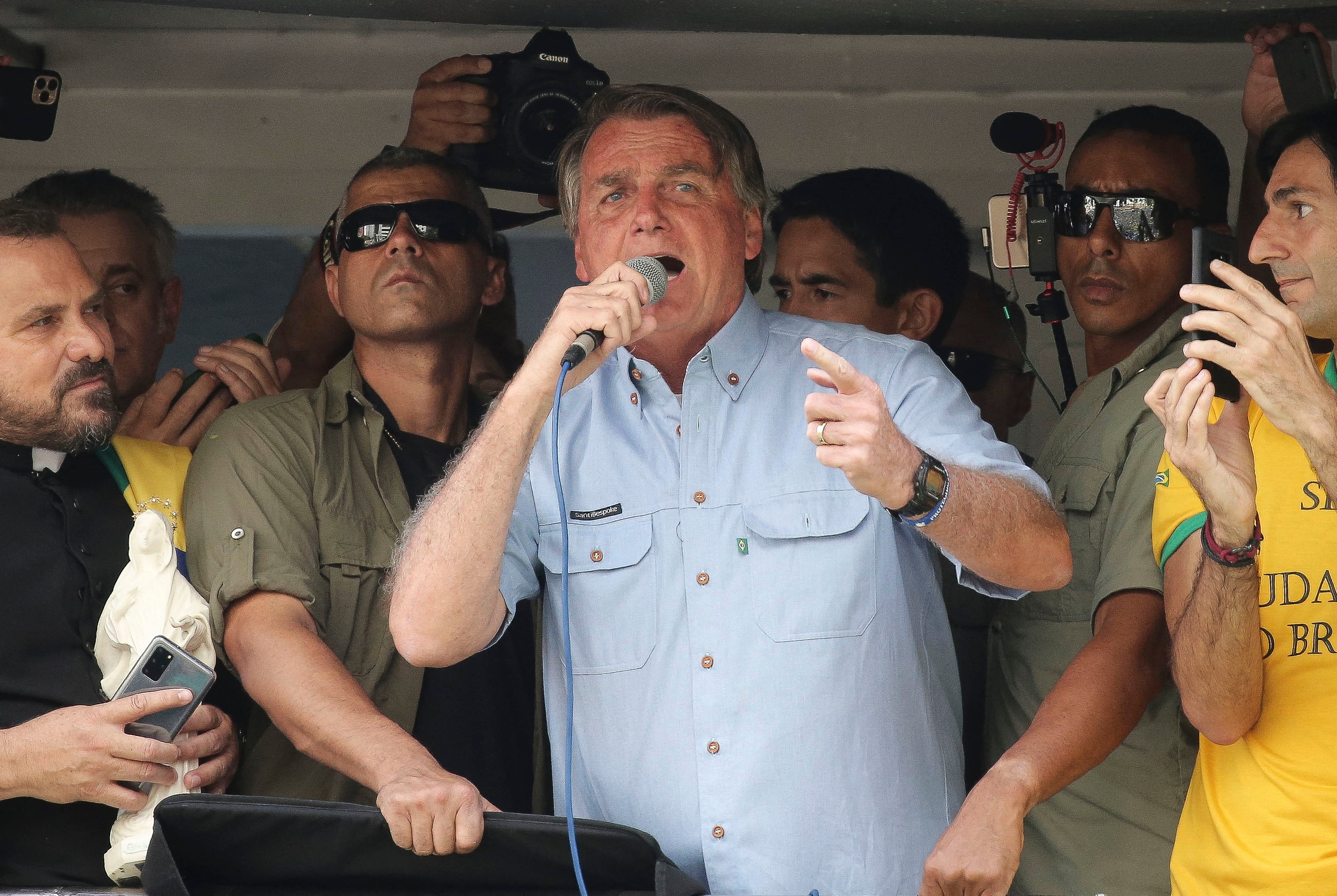
And yet, for now, Bolsonaro is still trying.
As he said at last September’s rally: “There are those who think they can take me from the presidency with the mark of a pen. Well, I say to everyone I have only three possible fates: arrest, death or victory. And tell the bastards I’ll never be arrested.
“Only God can take me from the presidency.”
Join our commenting forum
Join thought-provoking conversations, follow other Independent readers and see their replies
Comments


Bookmark popover
Removed from bookmarks